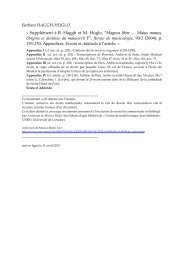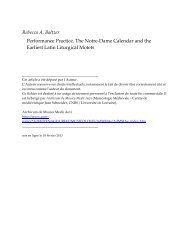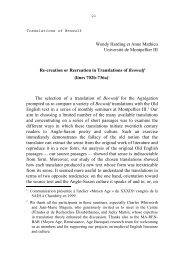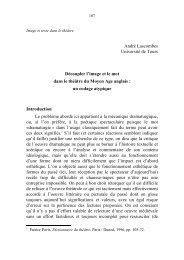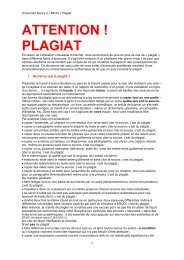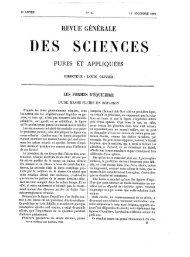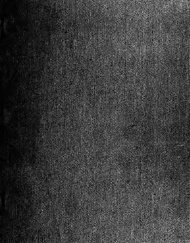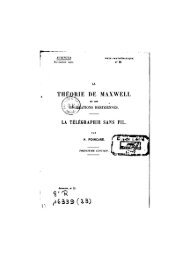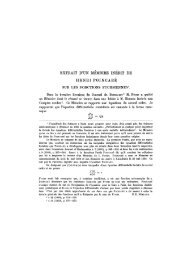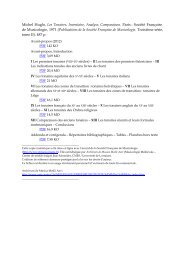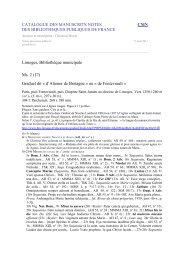You also want an ePaper? Increase the reach of your titles
YUMPU automatically turns print PDFs into web optimized ePapers that Google loves.
Chaucer's General Prologue<br />
161_(12U<br />
Here again the Past Simple (e) of the precise moment of the Narrator's<br />
sight of the Monk, is followed by the Past Simple (f) which is, in Free<br />
Indirect Speech, what the Monk revealed about his social identity and<br />
personal tastes. The line that follows clearly expresses assessment and<br />
approbation:<br />
A manly man, to be an abott able (l. 167)<br />
but cannot be clearly put down to either the Narrator or the Monk.<br />
This indeterminacy, however, suggests the social collusion between<br />
the two of them on the subject of the Monk's reputation (what the<br />
other monks say about him in his abbey) and sounds the note<br />
developed throughout the portrait of the Monk's complacent selfsatisfaction.<br />
Similar remarks apply to the Friar, whose first epithet, describing<br />
him as a wantowne and a merye (l. 208), could come from either the<br />
Narrator or the Friar speaking of the reputation that he had made for<br />
himself in his community: "I'm known to be a jolly fellow." What we<br />
learn about these two characters' appearance or visual image creates a<br />
more positive impression than what we learn of their actions and<br />
mind-set. However much one disapproves of the Monk on principle<br />
for neglecting and despising his monastic vows, or of the Friar for<br />
distorting the religious rules that he is supposed to live by, one can<br />
well be attracted by the Monk's evident care for his horse who is As<br />
brown as is a berry, (l. 207) or the Friar's sparkling eyes that twinkle<br />
As doon the sterres in the frosty night (l. 268). In contrast to the<br />
Knight, the Monk and Friar look more attractive than they sound, and<br />
if one refers to the datable Past of the Narrator's meeting with them<br />
(easily transformed into a Present of actual encounter), one can<br />
understand that they possess a fair amount of social charm which they<br />
exploit for their own ends.<br />
Most importantly, the Monk and the Friar create an atmosphere<br />
of jolly fellowship by their frank worldliness, their lack of pretence<br />
that they are better than they are. Because they twist the accepted rules



